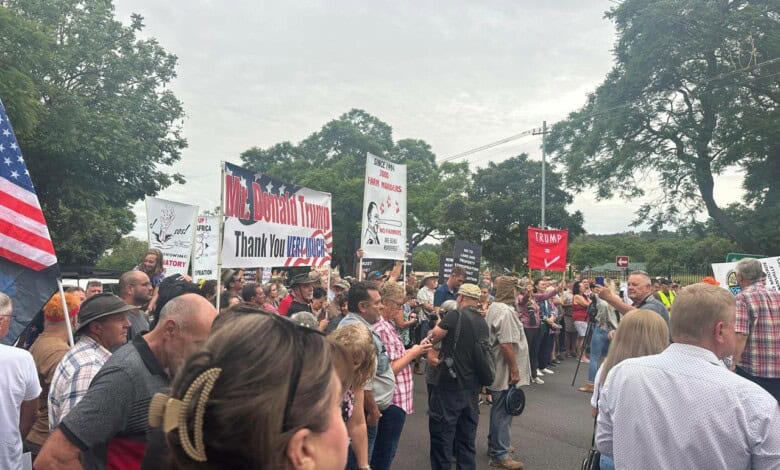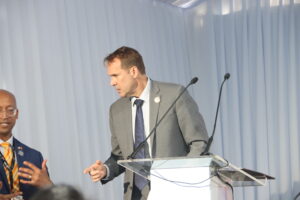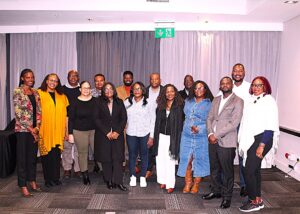Africa News 24 Pretoria Bureau
PRETORIA, South Africa – Thousands of Afrikaners converged on a crisp Saturday morning in Pretoria, rallying in support of US President Donald Trump’s recent directives concerning South Africa.
Organised by activist Willem Petzer, the gathering saw more than 3,000 people gather outside the US Embassy, where they delivered a memorandum outlining grievances against perceived discriminatory laws affecting white South Africans.

In his speech, Petzer highlighted concern over 118 local laws purportedly targeting white citizens, predominantly Afrikaners, citing issues ranging from economic policies to land expropriation.
“There is no justice in punishing individuals today for crimes committed by others in the past,” Petzer declared, indicating the group’s opposition to what they perceive as unjust policies.
The memorandum, backed by over 138,000 signatures, showed growing frustrations with South Africa’s handling of issues such as farm murders and economic empowerment policies. These sentiments echo Trump’s recent decision to cut aid to South Africa, drawing criticism from both local and international observers concerned about its potential impact on trade relations.

Meanwhile, President Cyril Ramaphosa urged national unity in response to the demonstrations. Addressing lawmakers in Cape Town recently, Ramaphosa stressed the need for resilience against external pressures, stating, “We will not be bullied by anyone, whether from within or outside our borders”.
More from Africa News 24
AfriForum praises Trump for highlighting Afrikaner injustice
The gathering of the Afrikaners reflected deep-seated divisions within South African society, pointing to broader debates on racial equity and international relations. As tensions simmered, both supporters and critics of the rally voiced their perspectives on the future trajectory of South Africa’s domestic and international policies.
This event marked a pivotal moment in South Africa’s ongoing discourse on race, justice, and international diplomacy, with implications reaching far beyond Pretoria’s bustling streets.












